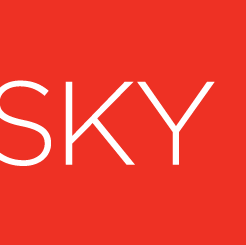Simply put, talent is competitive in today’s job market. Many industries are facing talent gaps, which means highly valued candidates get to choose pick-of-the-litter positions at top companies. Candidates aren’t just picking the highest paying jobs — they’re choosing employers with good reputations as places of employment. To adapt, recruiters are seeking passive candidates and focusing on long-term talent pool growth.
Recruitment marketing uses consumer marketing strategies and tools to generate candidate leads even before a job is posted. It goes beyond advertising jobs, to raise awareness of the employer brand and to engage talent.
What is recruitment marketing?
Recruitment marketing includes any tools and strategies that promote employer brand and employee value proposition to attract talent before they even apply. This can include emails, content marketing, social media marketing, employer branding, and other tools from PR and consumer marketing.
The goals of recruitment marketing are to make candidates aware of your company and job openings, to trigger their interest in your company, and to drive talent to apply. This is accomplished by selling the value of working for the company, rather than a specific job. It is an ongoing, proactive strategy.
In order to bring onboard great talent, recruitment teams need to generate and nurture leads just like in consumer marketing. Maybe a candidate isn’t looking for work now but comes across your career site while looking into your product or services. That’s an opportunity to make an impression. If your career site is well designed and branded, you might inspire visiting talent to apply in the future.
What exactly are you marketing?
As in consumer marketing, your messages shouldn’t be limited to the transaction between consumer and product. You’re not just marketing jobs — you’re marketing the value of joining your company.
The first step is to know your audience and develop your brand. Brand-led marketing strategies ensure that your message is cohesive and memorable across multiple platforms. With recruiting, you want to develop employer branding that communicates why the right talent should want to work for you.
The employer brand is how you are perceived as an employer. It should be a distillation of your company values, your employer reputation, and the company culture. This is how you will distinguish yourself from your competition. Most prospective applicants will be doing research on you, so familiarize yourself with what they will find on Glassdoor and internet searches, and put your best foot forward.
With recruitment marketing, you are selling your employee value proposition. Your EVP is the perceived value and benefits of working for your company. Why should top candidates want to work for you? What unique qualities and opportunities does the employer offer? Make sure that you’re not underselling your EVP, but also that it reflects actual values you can offer. If you can’t deliver on your promises, then your reputation will be damaged.
Give potential candidates a real idea of what it’s like to work for your company. Know what your employee experience is – and what you want it to be. Use testimonials, employee content, and a career site that really reflects the best of your company culture.
The best marketing strategies for recruitment
Inbound recruiting is a content marketing strategy focused on drawing in potential applicants who are already looking into your company. ‘Inbound’ refers to potential applicants (or customers, in the case of consumer marketing) initiating engagement with your company. This could be through online searches, social media, or content engagement. With inbound recruiting, you want to create CEO optimized content that tells your employer story.
Before you embark on new recruitment marketing efforts, make sure that the content inbound talent will find reflects well on your company. Brush up your career site and make sure that the most important information for your candidates is easy to find. Create content on your platforms that will lead people to your career site.
Another component of recruitment marketing is nurturing your leads. Even if your talent pool isn’t ready to apply for your openings right now, they may be in the future. Manage your relationship with candidates through newsletters, relevant industry content, and an informative career site.
In a world that is increasingly brand and image-savvy, recruitment marketing is a great tool to drive talent to your company, especially for hard to fill positions.

